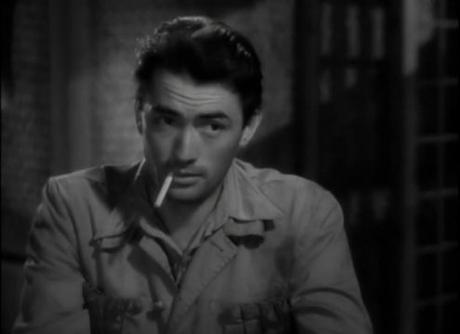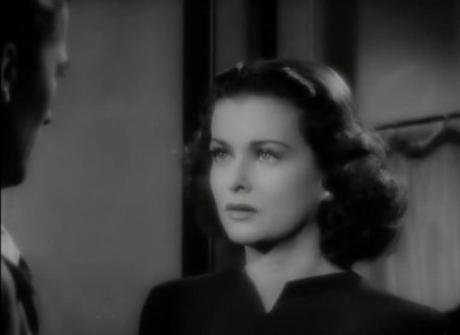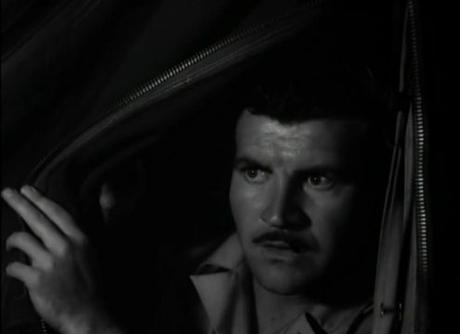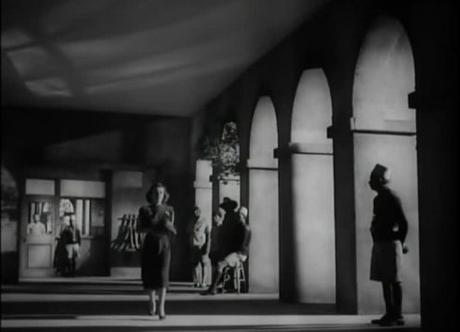
There is nothing else than now. There is neither yesterday, certainly, nor is there any tomorrow. How old must you be before you know that? There is only now, and if now is only two days, then two days is your life and everything in it will be in proportion. This is how you live a life in two days. And if you stop complaining and asking for what you never will get, you will have a good life. A good life is not measured by any biblical span.
Ernest Hemingway
Matters of life and death loom large in the writings of Hemingway, those two certainties which all of us know and which underpin philosophy, religion, and, of course, art. The Macomber Affair (1947) could be referred to as a drama based on one of those love triangles so beloved of storytellers from time immemorial. I've seen it spoken of in those terms and while this aspect is not only present but also pivotal in the development of the narrative, I do not believe it represents the core theme of the story. Instead the film is concerned with the late and brief flowering of one character's manhood, although I think the ending, reportedly added in order to avoid falling foul of the production code, detracts from this to an extent.
It begins with an airplane swooping ominously down from an inky black sky to land at Nairobi, down to earth and down to the unpleasant business of tidying up after a death. The dead man in question is one Francis Macomber (Robert Preston), a wealthy type who had been on a safari up country in the company of his wife Margot (Joan Bennett) and a hunter Robert Wilson (Gregory Peck). That plane, with its grim cargo of tension and guilt, brings them all back to offer explanations and justifications. As Wilson sits down to complete the necessary official report required for the inquest the story segues into the long flashback sequence which occupies most of the running time. It tells of the meeting between Francis Macomber and Wilson, how the former makes a deal for a hunting trip for himself and his wife. That the relationship of the Macombers is strained to say the least becomes ever more obvious as the trip progresses, and the needling and provocations bubble close to the surface. With Margot making eyes at Wilson and Francis sweating over something other than the heat, the professional hunter finds himself pressed from all directions. Everything comes to a head over the stalking and shooting of a lion, a key moment where Macomber shows his true colors to his wife, to his guide and to himself, and the primary color happens to be yellow. It's the effect of that incident on all concerned, but principally on Macomber himself, that shapes the rest of the tale. Sure the aforementioned triangle gains in significance but the point of it all is the accommodation a man must make with himself, a confrontation of soul and conscience which leads to fulfillment.

The last time I looked at a Hemingway sourced movie (, which was featured last October) I, as well as others, commented on the nature of that adaptation and how faithful it was to the original novel. The Macomber Affair was taken from the short story The Short Happy Life of Francis Macomber, and the script which came to the screen through the combined efforts of Casey Robinson, Frank Arnold and Seymour Bennett sticks pretty close to what Hemingway put down on paper. There are some changes to the structure, the positioning and duration of the flashback, and a prologue and epilogue which not only frame the narrative but also see a shift in how the Macombers are presented and thus how the theme of the story is presented. By adding the backstory of the ill-starred couple via the coda the movie seeks to flesh out, humanize, explain and perhaps justify the actions of Margot. This allows the story to end on a redemptive, restorative note, with Margot moving towards the realization of a personal truth, and that is something which is certainly in keeping with the spirit of Hemingway in general.

Yet, at the same time, by pushing the character and the story in this direction, the script dilutes much of the meaning that was supposed to come from the earlier epiphany experienced by Francis. That, not just some macho posturing over the conquest of fear, but the author's characteristic view of life and death, the eternal and inseparable relationship between those states and of the human condition itself, is undermined. Hemingway's affinity for hunters, sportsmen and matadors suggests one who feels that the living of a life is only really possible not merely by confronting death but by flirting with it and indeed embracing it. This is an uncomfortable philosophy but it can be detected in much of the writer's work.

And this is what the story is about; gaining mastery over and the subsequent banishment of fear is there to be sure, but what's even more important is capturing the spirit of living, a state which can only be achieved by a forthright communion with one's atavistic fears. Hemingway's story sees Francis Macomber reach this place and promptly expire, the purpose of his whole existence therefore fulfilled. This happens in the movie too of course, but the light in which the character is subsequently cast in order to facilitate the redemptive epilogue is shaded much darker. One could argue that this adds complexity but I remain unsure about that - is the end result muddle rather than complexity? I cannot decide just now but another viewing somewhere down the road may clarify the matter in my mind.
Zoltan Korda's full list of credits as director isn't extensive, and the number of movies he made in Hollywood only runs to a half a dozen or so, with The Macomber Affair coming towards the end of that period. It benefits from its origin as a short story and the pace is correspondingly brisk, with a smooth blend of exterior shooting (Mexico standing in for the African locations) and indoor studio work. The last piece posted on this site featured a score by Miklós Rózsa and his work on The Macomber Affair is another characteristically evocative example, complementing the tense passions which are played out on screen.

Gregory Peck is said to have been very enthusiastic about this project and it's fair to say his work on it reflects that. I've heard criticism of his supposed lack of expressiveness in the past but I feel that's often used as an artificial stick to beat those actors who tended towards restrained and internalized performances. That's how I'm inclined to see Peck, and his low key approach is a good fit for this introspective Hemingway character. Joan Bennett could do little wrong in the 1940s as far as I'm concerned, her films with Fritz Lang being highlights. I've mentioned the course of her character's development above and its effect on the tone of the picture, and I think it lends a slightly uneven quality to her performance too. That's not to say she does anything much wrong but the femme fatale aspects of the part, and they are strong in the text, are both watered down and rendered vaguely confusing due to the needs imposed by the ultimate resolution. It still works, but the writing makes it harder. Finally, Robert Preston, whose long and hugely varied career stands as a testament to his versatility, is fine as the hollow man at the center of the story, starting out as (to borrow from Raymond Chandler) what might be referred to as a juvenile at the art of living, getting across the essential brittleness that accompanies his emptiness before visibly growing into full manhood for the duration of his short happy life.
To the best of my knowledge, The Macomber Affair has not been given an official release anywhere to date. This is a situation I can only hope is rectified sooner rather than later. Yes, I have some reservations about the script choices but the positives clearly override those. All told, this is a very good film which continues to be undeservedly neglected.
